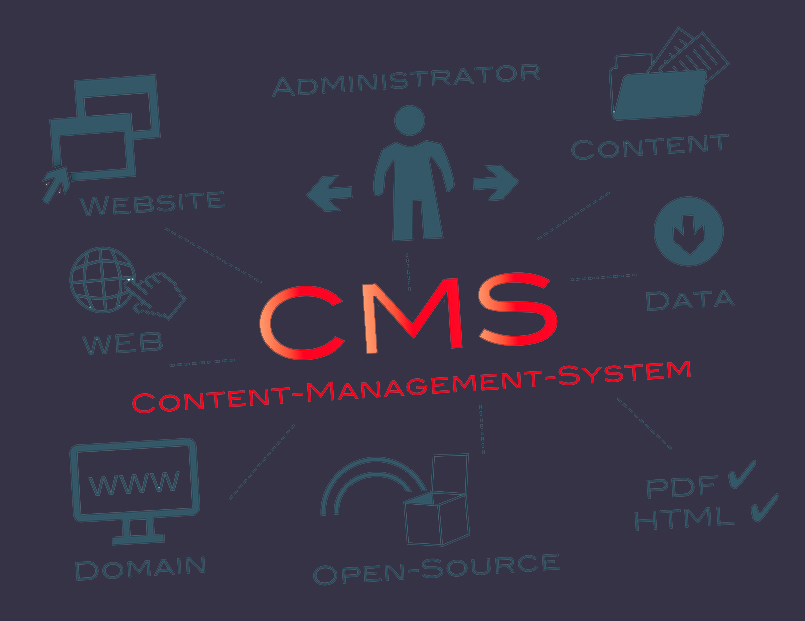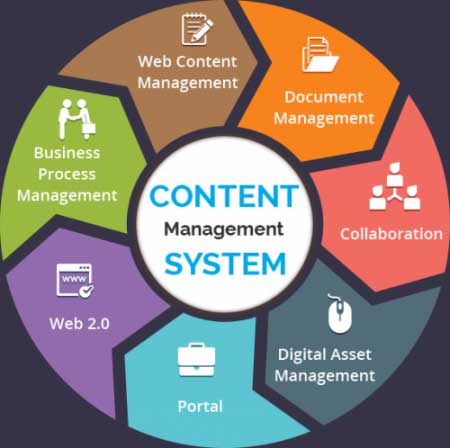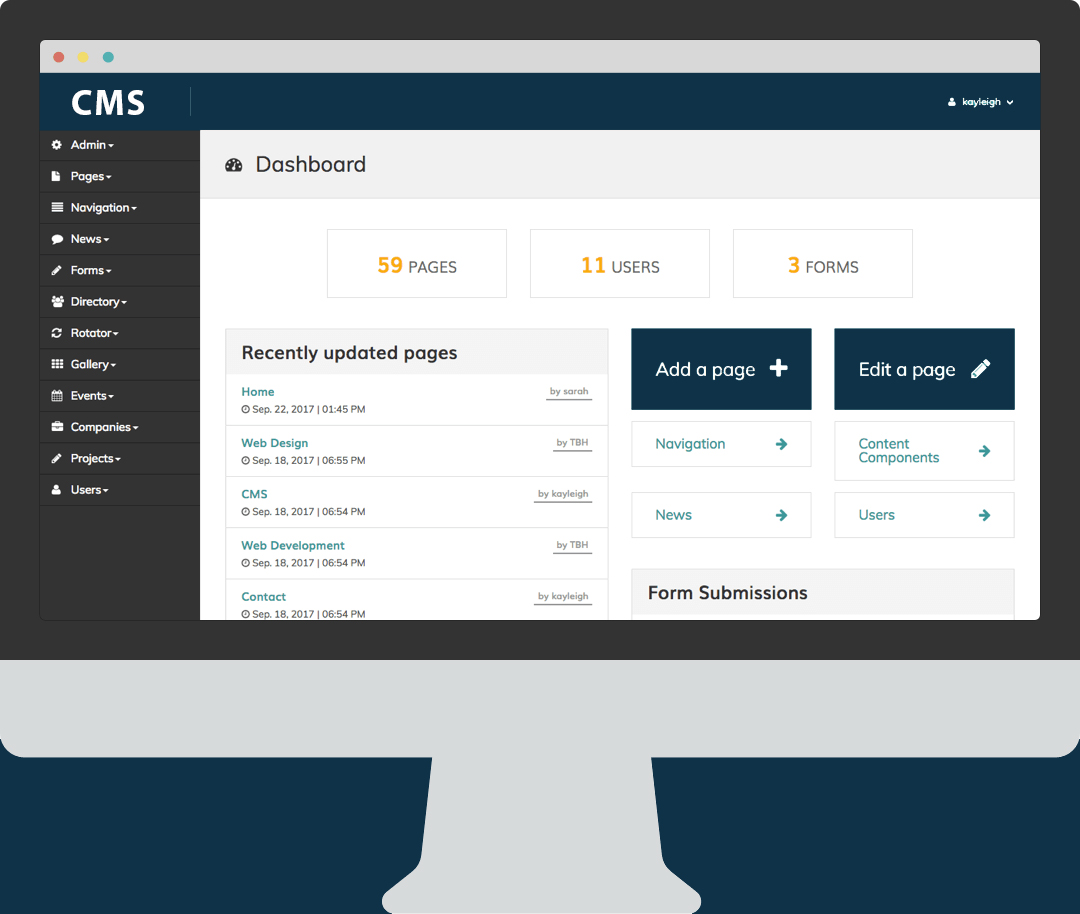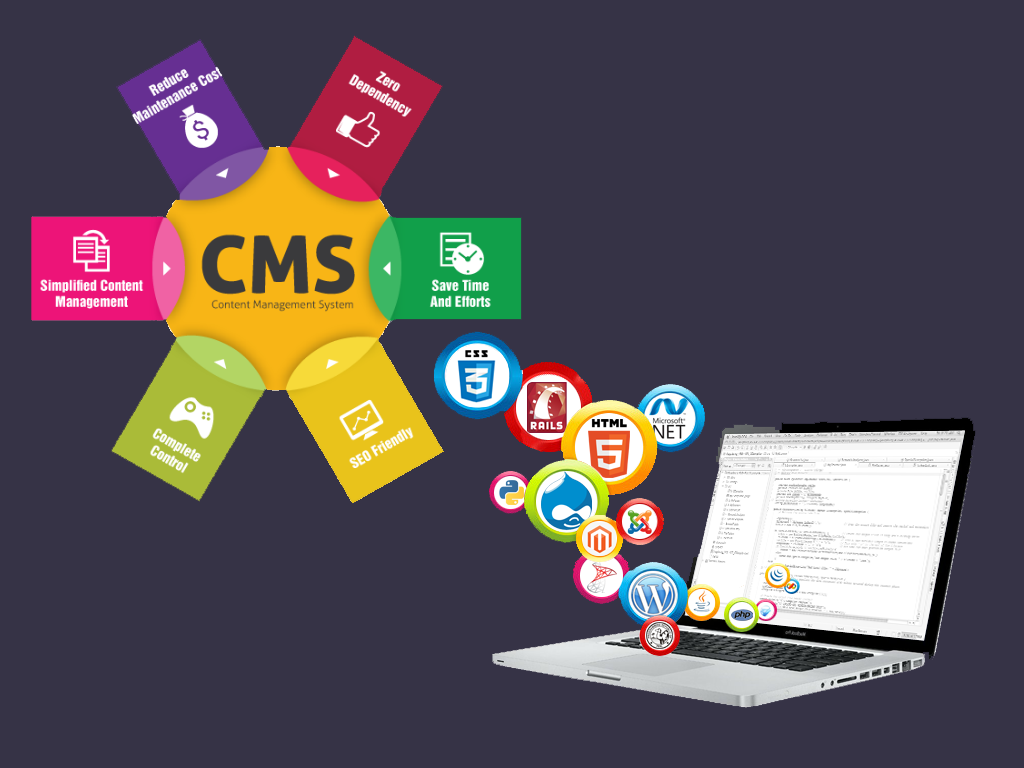Christy Rae SCC WEB120 Big Project
CMS Research

Content Management Systems otherwise known as CMS are website systems and blogging platforms are tools that turn the website management over to the website owners hands. They allow for the average user or business owner to take control of the content on the site - creating and updating everything from fresh content on existing pages to brand new pages with a few clicks of the buttons on the dashboard panel. They also provide a blogging platform that can be integrated into the site to share daily/weekly/monthly blog updates to your website audience. Jamie Spencer defines the CMS in ‘Content Management System CMS Comparison’ when he says “These days many people prefer to use a content management system for building a blog or website as it makes it a lot easier for people with no web design experience to make minor changes to the website such as adding blog posts, uploading new images or making small edits to your key pages.”(Spencer)
The most popular CMS out there are WordPress, Joomla and Drupal. Each of these systems own a share of the CMS marketplace and all have their benefits as well as drawbacks. They rank in easiest to most complex to use and using the wrong CMS tool for your business can end up being problematic. Mike Johnston points out their rankings in ‘WordPress, Joomla and Drupal Are Not the Best CMS’ by saying, “WordPress, Joomla, Drupal (Beginner user, Intermediate user, Advanced user). Improperly using a CMS for a situation it's not best suited for can result in problems and a poorly configured system which in turn, can lead to issues down the road.”(Johnston)
 Let’s start with WordPress, the most popular CMS with a 58.4% of the market using its platform, a total of 75 million websites (Spencer). Being open source and blogging focused it is a great tool for some - but not all. Because it’s primary focus is blogging it is a great tool for this - but it requires different plug-ins to be able to function as the tool needed for most businesses - this can become unwieldy in its set-up. These plug-ins require frequent updating as WordPress itself updates, which can be a problem if the person who is designing the plug-in doesn’t update to the current version and thus the plug-in is no longer compatible. Additionally, the update of the plug-ins must managed within your WordPress site and it is necessary to make sure this is kept up. Mike Johnston points out “...a HUGE percentage of the plugins in the WordPress repository are old and out of date yet still available to install on your system. This is a huge issue as these older plugins still exist and are not removed. There really needs to be an automated system that removes plugins older than say, one year, automatically if they are not updated otherwise someone can unknowingly install something that can expose their website to vulnerabilities.”(Johnston) A further problem with these plug-ins is that they are not tested which leaves the system open to hacking. Finally, the dependence upon the plug-ins to create a site and thus having a number of plug-ins operating your system could create an unwieldy site, this could cause lag in your site load time, something that could cause your visitors to move on to another site.
Let’s start with WordPress, the most popular CMS with a 58.4% of the market using its platform, a total of 75 million websites (Spencer). Being open source and blogging focused it is a great tool for some - but not all. Because it’s primary focus is blogging it is a great tool for this - but it requires different plug-ins to be able to function as the tool needed for most businesses - this can become unwieldy in its set-up. These plug-ins require frequent updating as WordPress itself updates, which can be a problem if the person who is designing the plug-in doesn’t update to the current version and thus the plug-in is no longer compatible. Additionally, the update of the plug-ins must managed within your WordPress site and it is necessary to make sure this is kept up. Mike Johnston points out “...a HUGE percentage of the plugins in the WordPress repository are old and out of date yet still available to install on your system. This is a huge issue as these older plugins still exist and are not removed. There really needs to be an automated system that removes plugins older than say, one year, automatically if they are not updated otherwise someone can unknowingly install something that can expose their website to vulnerabilities.”(Johnston) A further problem with these plug-ins is that they are not tested which leaves the system open to hacking. Finally, the dependence upon the plug-ins to create a site and thus having a number of plug-ins operating your system could create an unwieldy site, this could cause lag in your site load time, something that could cause your visitors to move on to another site.
Joomla is the second most popular CMS with 7.2% and 2.8 million sites, a significant difference with WordPress, which shows the power of WordPress and its grasp of the market (Spencer). Joomla suffers from the same issue of plug-in needs as WordPress, however it has a great community that keeps each other supported through the needs to change and update these systems. They do have a great deal of integrated options for social networking as well as e-commerce solutions which can alleviate the plug-in heavy space for these items. Joomla gets a bad wrap as difficult to use, although not as easy as WordPress it is a system that is designed for a user more familiar with CMS or has some coding and programming background that can work with the system. Johnston says it best when he points out that “Joomla also tends to be a bit more advanced than WordPress and those who recommend it to new users who don't have experience with content management systems or have never used one before are doing them and the product a disservice.”(Johnston)
 Drupal is the third most popular CMS with 4.8% and 1.1 million users, they are also the most complex system for programming (Spencer). Although complex, the system offers great options once you get accustomed to the framework and its options. The greatest benefit to Drupal is that it can manage multiple sites from the one Drupal framework, which can allow for a business to have the look and feel of different websites all from one portal. It is incredibly extendable but does require developer knowledge to manage this. It definitely has a strong learning curve compared with Wordpress or Joomla - given this it requires a lot more programming as is less ‘out of the box’ simple to use - which can be a drawback if you want a website up quickly and easy to edit on the go for the newbie user. Gavin Graham says in ‘Best Content Management System’, “Drupal is more technically advanced and fully realized than WordPress and Joomla, which makes it the most attractive option for businesses with dedicated development resources or who outsource this work. You can also access and edit the root files directly if you need to make more significant changes to the code base. It’s also less resource-intensive, which means that it offers better performance with faster loading pages and response times.”(Graham)
Drupal is the third most popular CMS with 4.8% and 1.1 million users, they are also the most complex system for programming (Spencer). Although complex, the system offers great options once you get accustomed to the framework and its options. The greatest benefit to Drupal is that it can manage multiple sites from the one Drupal framework, which can allow for a business to have the look and feel of different websites all from one portal. It is incredibly extendable but does require developer knowledge to manage this. It definitely has a strong learning curve compared with Wordpress or Joomla - given this it requires a lot more programming as is less ‘out of the box’ simple to use - which can be a drawback if you want a website up quickly and easy to edit on the go for the newbie user. Gavin Graham says in ‘Best Content Management System’, “Drupal is more technically advanced and fully realized than WordPress and Joomla, which makes it the most attractive option for businesses with dedicated development resources or who outsource this work. You can also access and edit the root files directly if you need to make more significant changes to the code base. It’s also less resource-intensive, which means that it offers better performance with faster loading pages and response times.”(Graham)
 So which CMS is the best solution for you? Ultimately it comes down to your experience with CMS and coding, your time and capacity to update and stay on top of the needs of your CMS as well as how complex of a site you need. If you are looking for a simple site with a blogging module WordPress is likely your best solution. If you are seeking a shopping cart system or membership social network platform Joomla might be the direction for you. If you are looking to manage multiple sites out of one space and have a great deal of complex coding and specifications for your business Drupal is likely the best choice for your needs.
So which CMS is the best solution for you? Ultimately it comes down to your experience with CMS and coding, your time and capacity to update and stay on top of the needs of your CMS as well as how complex of a site you need. If you are looking for a simple site with a blogging module WordPress is likely your best solution. If you are seeking a shopping cart system or membership social network platform Joomla might be the direction for you. If you are looking to manage multiple sites out of one space and have a great deal of complex coding and specifications for your business Drupal is likely the best choice for your needs.